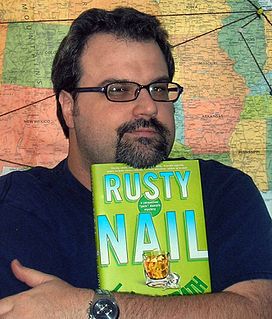A Quote by Nick Harkaway
Amazon makes money differently from a conventional publisher. It is an infrastructure player.
Quote Topics
Related Quotes
Booksellers are tied to publishing - they need conventional publishing models to continue - but for those companies, that's not the case. Amazon is an infrastructure company; Apple sells hardware; Google is really an advertising company. You can't afford as a publisher to have those companies control your route to market.
There are lots of retailers that are now scrambling to emulate the Amazon model, so Amazon does not have a monopoly on same-day distribution or broad selection or low prices. All that said, there are advantages that accrue to the largest player, so I don't see much in the way of Amazon slowing down.
To walk in money through the night crowd, protected by money, lulled by money, dulled by money, the crowd itself a money, the breath money, no least single object anywhere that is not money. Money, money everywhere and still not enough! And then no money, or a little money, or less money, or more money but money always money. and if you have money, or you don't have money, it is the money that counts, and money makes money, but what makes money make money?
As soon as I finished 'The Finkler Question,' I was in despair. I'd changed my English publisher because they'd been lukewarm about it and not offered enough money. The American publisher didn't like it. The Canadian publisher didn't like it... I'd been bleeding readers since my first novel, and I could see my own career going down.
What makes the Amazon-Whole Foods deal so problematic is that they are going into an industry with large infrastructure, brick-and-mortar cost, and seeking to build consolidation where we already suffer from consolidation. It's not like Walmarts and Targets have been good for wages or local grocery stores or niche producers.
You know, if you look back in the 1930s, the money went to infrastructure. The bridges, the municipal buildings, the roads, those were all built with stimulus money spent on infrastructure. This stimulus bill has fundamentally gone, started out with a $500 rebate check, remember. That went to buy flat-screen TVs made in China.






































